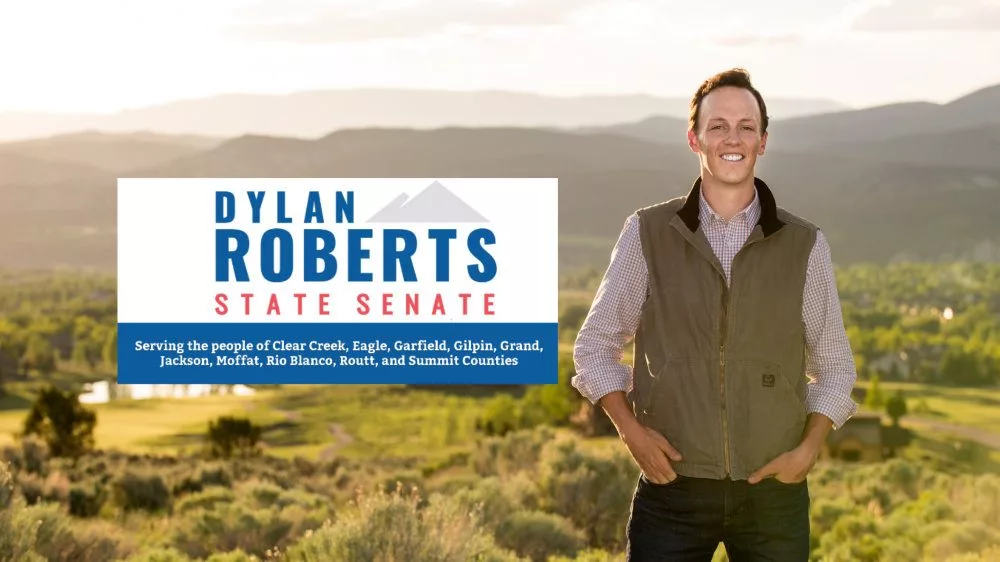
Confusion from DC hurts rural Colorado
by Senator Dylan Roberts.
Hello from the Capitol where one month into the legislative session, the Colorado State Legislature is hard at work. This session has already emphasized the importance of a functional symbiotic relationship between federal, state, and local governments. With a new administration in Washington, we face day-to-day uncertainty and ongoing announcements that threaten federal support when providing important services to rural Colorado has never been more important. The Trump Administration will stop playing politics with these existing funds – because it could be catastrophic for rural Colorado. Here’s why:
Rural Healthcare
Senate District 8 is home to 9 rural hospitals, including 5 that are considered “critical access hospitals.” A funding freeze impacts most hospitals, but rural and critical access hospitals tend to serve older and lower-income populations, meaning they serve a disproportionate number of Medicaid users and as a result, rely more on federal funding. In 2023, rural hospitals in Colorado delivered almost five thousand babies and cared for nearly five hundred thousand outpatients. They also employed sixteen thousand community members and had an indirect economic benefit of $6.6 billion dollars. Rural hospitals are a crucial resource in our communities, where my constituents have limited healthcare options. The closure of a rural hospital forever changes the landscape of that community.
In addition to our rural hospitals and Medicaid users, federal funding supports rural telehealth options and support for community health centers. Mountain Family Health Center, Northwest Colorado Health, Summit Community Care Clinic, and Clinica Family Health provide essential care across my district while operating with limited funding. The Colorado Community Health Network, an organization representing the 20 community health centers at work across the state, stated that a freeze would have the “immediate impact of preventing nearly $9 million in monthly payments that are used to cover payroll and other costs.” Uncertainty about federal support, even for only a few days or weeks, can have long-term consequences for organizations on the front lines providing care in rural Colorado.
Agriculture
Agriculture producers are a major part of our economy and character and they provide the state and the country with high quality food. Farmers nationwide received more than $10.5 billion in direct government support in 2024, nearly half of which came from conservation focused programs. The recent temporary federal funding freeze would have paralyzed efforts to encourage sustainable agriculture practices, farm loan programs, and/or disaster assistance for farmers that Congress passed in December. Supporting our farmers and ranchers means ensuring they have reliable access to innovative developments and federal support.
Water Funding
I am incredibly proud of the work done by the Colorado River District, local governments, counties, and the state to secure half the funding needed to permanently protect Shoshone water rights. In January the federal government announced a $40 million commitment to match state funds and secure the water right, which would forever increase water security on the Western Slope without changing existing flows into the Front Range. That $40 million has now been temporarily frozen by the new administration, along with another $95 million specifically focused on supporting the Western Slope areas of the Colorado River Basin. Protecting finite water resources is not a partisan issue and we should all urge the Trump Administration to un-pause this crucial funding for Western water security.
Ongoing Confusion
31.7% of Colorado’s budget comes from federal funds. The attempted federal funding freeze, even though it has been rescinded, caused widespread concern and confusion. Head Start programs provide childcare and preschool education to 11,600 children in Colorado and create 5,000 jobs across the state. Dozens of programs across the country are still unable to access their federal funding. The Medicaid portal was shut down nationwide, slowing down reimbursement for Colorado hospitals. More than 25,000 Colorado seniors rely on Meals on Wheels to access food, and the program had still not received clarity on whether or not they would be allowed to continue operating before the order was revoked.
Rural communities have the most to lose amongst this confusion. While federal uncertainty persists, I am grateful to be at the State Capitol working with Republicans and Democrats who share my goal: to lower costs, protect our rural communities, and make the lives of our constituents better. In a state where an estimated 11.2% of the population is food insecure, we don’t need to cut funding to food banks. We need to make sure groceries are as affordable as possible. In a state where almost 34% of people spend more than 30% of their income on housing, we don’t need to make it more difficult to afford a home. We need to be working to build more affordable units and creating a path to not just affordable rentals but affordable homeownership.
Making Colorado more affordable, keeping Colorado safe, and supporting the Western Slope way of life are my top priorities, and I will never stop advocating for them, and you. You can contact me directly at SenatorDylanRoberts@gmail.com or 970-846-3054.
Dylan Roberts is the State Senator for Clear Creek, Eagle, Garfield, Gilpin, Grand, Jackson, Moffat, Rio Blanco, Routt and Summit Counties.